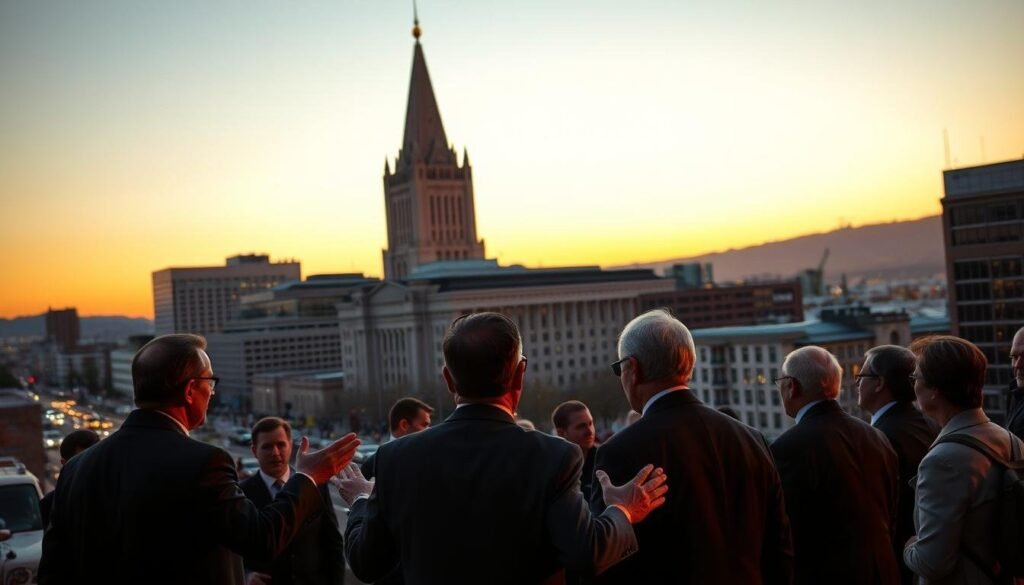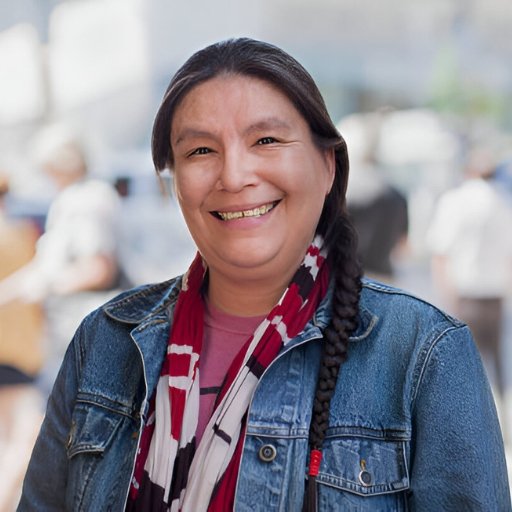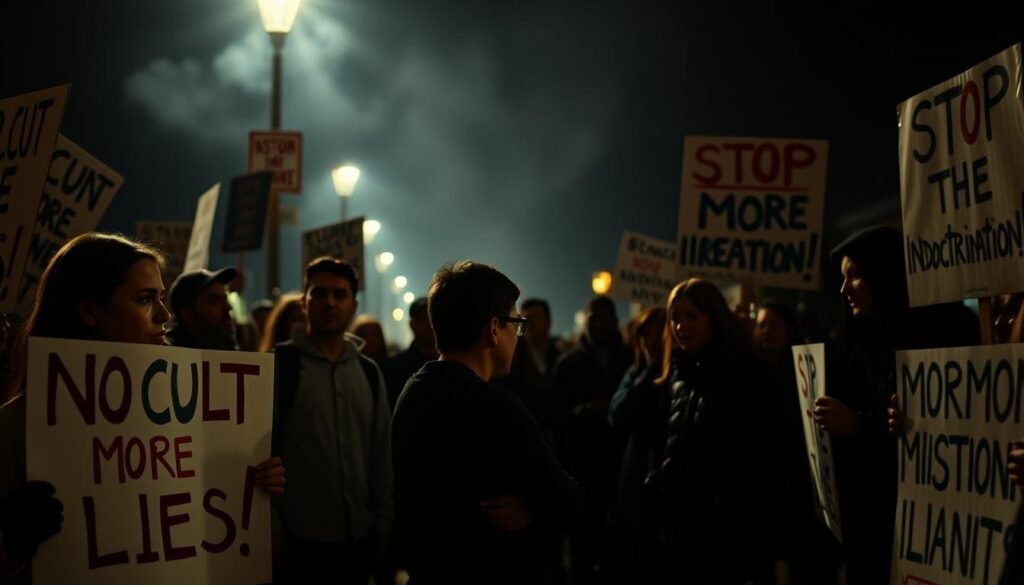Last updated on October 20th, 2025 at 11:39 am
Why People Don’t Like Mormons? Have you ever wondered why some people don’t like Mormons? It’s important to understand anti-mormon sentiment in today’s world.
The Church of Jesus Christ of Latter-day Saints, known as the Mormon Church, has sparked debate. Many historical, religious, and cultural reasons lead to negative views of mormonism.
This article will dive into the complex reasons behind these views. We’ll look at the social and cultural settings that influence how people see Mormons. By exploring these factors, you’ll get a better grasp of the complex issues involved.
Contents
- 1 Understanding Mormonism: A Brief Overview
- 2 Historical Context: Origins of Anti-Mormon Sentiment
- 3 Religious Differences: Theological Controversies
- 4 Why Do People Not Like Mormons? Cultural Practices and Lifestyle
- 5 Media Representation and Stereotypes
- 6 Political and Social Controversies
- 7 Conclusion: Why People Don’t Like Mormons?
- 8 FAQ
- 8.1 What is Mormonism?
- 8.2 What are the core beliefs of Mormons?
- 8.3 Why do some people have a negative opinion of Mormons?
- 8.4 What is the significance of the Book of Mormon?
- 8.5 How do Mormons view other Christian denominations?
- 8.6 What is the role of missionaries in Mormonism?
- 8.7 How do Mormons approach family and relationships?
- 8.8 What is the significance of temple worship in Mormonism?
- 8.9 How do Mormons engage with politics and social issues?
- 8.10 What are some common stereotypes about Mormons?
- 8.11 How can I learn more about Mormonism?
Understanding Mormonism: A Brief Overview
Mormonism is a complex and fascinating faith that started in the early 19th century. It is officially known as the Church of Jesus Christ of Latter-day Saints. Joseph Smith founded it in 1830. Mormons believe in Jesus Christ and his teachings, and they also have the Book of Mormon as scripture.
Mormon beliefs focus on continuing revelation. This means God talks to his children through prophets. Some key beliefs are:
- The importance of families and the potential for eternal families
- A belief in the potential for individuals to become like God through obedience and righteousness
- The practice of baptism for the dead, a vicarious ordinance performed on behalf of deceased individuals
Mormons practice regular church attendance and sacraments like the sacrament (similar to communion). They also do missionary service. Many Mormons follow the Word of Wisdom, a health code. It bans alcohol, tobacco, coffee, and tea.
Learning about these aspects of Mormonism helps you understand what it means to be Mormon. It shows how these beliefs and practices shape their lives. [Why People Don’t Like Mormons?]
Historical Context: Origins of Anti-Mormon Sentiment
To understand anti-Mormon sentiment, we must look at the Mormon faith’s early days. The roots of anti-Mormonism began in the 19th century with Joseph Smith’s Church of Jesus Christ of Latter-day Saints.
The early years of Mormonism were filled with controversy and conflict. This was mainly because of its unique beliefs and practices. As the church grew, so did the opposition, driven by misunderstandings and fears.
The Missouri Executive Order 44 in 1838 was a key event. It led to Mormons being forced out of Missouri. This period of violence and persecution had a lasting effect on the Mormon community, adding to the ongoing tension.
| Event | Year | Impact |
|---|---|---|
| Establishment of the Mormon Church | 1830 | Initial reactions of curiosity and skepticism |
| Missouri Executive Order 44 | 1838 | Expulsion of Mormons from Missouri, increased persecution |
| Mountain Meadows Massacre | 1857 | Violence against Mormon settlers, further antagonism |
The history of anti-Mormon sentiment is complex. It involves religious, social, and political factors. By looking at these events, we can better understand why anti-Mormon feelings have lasted so long.
Religious Differences: Theological Controversies
Exploring Mormonism reveals many religious differences. Mormon theology stands apart from other Christian beliefs, sparking debates. A key issue is the Mormon view of Godhead, which differs from the traditional Christian Trinity.
Mormons believe in a Godhead of three beings: God the Father, Jesus Christ, and the Holy Ghost. This belief comes from Joseph Smith’s revelations, which challenged traditional Christian views.
Mormonism also has a unique view on salvation. They believe in a plan that allows for exaltation to godhood through obedience. This idea of eternal progression is seen as different from traditional Christian salvation through faith in Jesus Christ alone.
Key Theological Debates
- The nature of the Godhead and the concept of the Trinity
- The role of Jesus Christ in Mormon theology
- The plan of salvation and the concept of eternal progression
These debates show the complexity of Mormon theology and its differences from other Christian beliefs. Understanding these differences is key for interfaith dialogue and respect among religions.
Why Do People Not Like Mormons? Cultural Practices and Lifestyle
Mormons have unique cultural practices that make them stand out. These practices come from their beliefs and values. They shape their daily lives and how they interact with others.
Mormons place a big emphasis on family. They believe family unity and support are key to their spiritual journey. This is shown in their family gatherings, prayer, and studying scriptures together.
Family Structure and Gender Roles
Mormon families often follow traditional gender roles. Men are seen as the spiritual leaders, and women focus on nurturing their families and supporting their husbands. But, it’s important to remember that these roles can differ in each family.
The table below highlights some key aspects of Mormon family structure and gender roles:
| Aspect | Traditional Mormon View | Modern Variations |
|---|---|---|
| Family Leadership | Men are considered spiritual leaders | Shared leadership between spouses |
| Gender Roles | Traditional roles with men as providers and women as caregivers | Diverse roles with many women working outside the home |
| Family Activities | Regular family prayer, scripture study, and activities | Varied family activities reflecting individual interests |
Mormons also follow a health code called the Word of Wisdom. It bans coffee, tea, alcohol, and tobacco. This choice makes them seem health-conscious and family-focused.
When looking at why some people dislike Mormons, it’s important to see the community’s diversity. Some might see their practices as old-fashioned or too conservative. But, others find them to be a source of strength and community.
By understanding and valuing these practices, we can move past stereotypes. This helps us see the Mormon community in a more nuanced way. [Why People Don’t Like Mormons?]
Media Representation and Stereotypes
When you look at how the media shows Mormons, you see a mix of stereotypes and wrong ideas. These ideas have been around for a long time. They shape how people see Mormons and can make people dislike them.
Mormons have been shown in many ways in the media. They’ve been seen as strange, villains, or heroes. These views often use stereotypes. They make Mormons seem simple and wrong.
These stereotypes affect how people see Mormons. For example, some think Mormons are too focused on missionary work. They see it as annoying. But, missionary work is very important to Mormons.
| Media Representation | Impact on Public Perception |
|---|---|
| Portrayal as villains or heroes | Reinforces negative or overly positive stereotypes |
| Focus on missionary work | Perceived as intrusive or overly aggressive |
| Simplification of complex beliefs | Leads to misunderstandings and misconceptions |
It’s important to understand these stereotypes. This helps us see Mormons in a better light. By knowing where these stereotypes come from, we can work towards fairer media portrayals. [Why People Don’t Like Mormons?]
Political and Social Controversies
Mormons often find themselves at the heart of political and social debates. Their actions in politics and social issues spark both praise and criticism. Some see their efforts as a positive force, while others believe they try to push their views too far.
The Church of Jesus Christ of Latter-day Saints, known as the Mormon Church, has taken stands on many issues. These include family values, same-sex marriage, and abortion. For example, their opposition to same-sex marriage has caused a lot of public discussion.

Looking into the Mormon community’s political actions shows a mix of views. Some see their involvement as a way to uphold moral values and support democracy. Yet, it also brings up questions about the balance between church and state.
| Issue | Mormon Stance | Public Perception |
|---|---|---|
| Same-sex Marriage | Opposed | Controversial |
| Abortion | Generally opposed, with exceptions | Divided |
| Family Values | Strongly supportive | Generally positive |
To grasp these controversies, we need to see the Mormon community’s role in society clearly. Their political and social actions may be debated, but they also show the community’s commitment to addressing big issues.
Conclusion: Why People Don’t Like Mormons?
You now know why some people have negative views of Mormons. This includes historical and theological differences, cultural practices, and how they are shown in the media. To make the Mormon image better, we need to tackle these issues and start a more detailed conversation.
Working together is key to closing this gap. Start by talking respectfully, trying to see things from different angles, and fighting against stereotypes. This effort will help make our community more welcoming and accepting.
Your actions can help Mormons and non-Mormons live better together. This means we can all learn more about each other’s beliefs and ways of life. By supporting understanding and respect, we can make our society a nicer place for everyone.
See Also: What Happens If a Mormon Drinks Alcohol?
FAQ
What is Mormonism?
Mormonism is a Christian faith that started in the 1800s. It was founded by Joseph Smith. It’s based on the Book of Mormon and other sacred texts.
What are the core beliefs of Mormons?
Mormons believe in Jesus Christ and the Bible. They also value family a lot. They think God still talks to people today through prophets.
Why do some people have a negative opinion of Mormons?
Some people might not like Mormons because of misunderstandings. This can come from history, culture, and social issues.
What is the significance of the Book of Mormon?
The Book of Mormon tells the story of ancient people in the Americas. It’s seen as a key scripture, alongside the Bible.
How do Mormons view other Christian denominations?
Mormons see other Christian groups as important in God’s plan. But they believe their church is the true church of Jesus Christ.
What is the role of missionaries in Mormonism?
Mormon missionaries share their faith with others. They often visit homes and engage in outreach activities. [Why People Don’t Like Mormons?]
How do Mormons approach family and relationships?
Mormons value family a lot. They believe families can stay together forever through temple covenants and other rituals.
What is the significance of temple worship in Mormonism?
Temple worship is key in Mormon faith. Members do important rituals and make covenants there. These are seen as crucial for their salvation.
Mormons, like everyone, have their own views on politics and social issues. Some get involved in politics and advocacy. [Why People Don’t Like Mormons?]
What are some common stereotypes about Mormons?
Some stereotypes about Mormons include wrong ideas about their dress and lifestyle. These don’t show the real diversity in the Mormon community.
How can I learn more about Mormonism?
To learn about Mormonism, read the Book of Mormon. You can also visit a Mormon church or website. Talking to a Mormon friend or missionary is also a good idea.

Ramona Pearson is a U.S.-based religious researcher and writer with over 10 years of experience studying Mormon history and beliefs. She is also a practicing Mormon and writes to inform readers with accuracy and balance.

